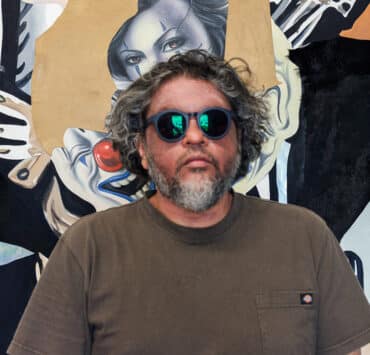|
Getting your Trinity Audio player ready...
|
For Elizabeth Nieto, working at a top tech company, innovating for a global workforce, and navigating a corporate culture influenced by Sweden and the United States is all in a day’s work. After successful stints in HR roles at Citigroup, Marsh & McLennan, and MetLife, among others, she made the switch and joined the tech sector: first at Amazon, and now at Spotify.
As Spotify’s global head of equity and impact and a mother of two (a teenage son and an adult daughter living in Doha, Qatar), Nieto is committed to making the company one of the most tolerant, welcoming, and multicultural employers in the world. In addition to her globally impactful day job, the executive brings her skills and a passion for equity to nonprofit boards supporting underserved and at-risk youth.
The NYC-based Argentinian native spoke to Hispanic Executive about her outstanding commitment to equity and what a tech-focused future means for talent and employers.
In 2021, you joined Spotify (“The Band”) to lead Equity and Impact, where you brought together Diversity, Inclusion, and Belonging; Early Career Pipeline; Sustainability; and Social Impact. Can you share more on the experience and Spotify’s vision?
It is exciting to be part of a company that has an ambitious mission: To unlock the potential of human creativity by giving a million creators the opportunity to live off their art and billions of fans the opportunity to enjoy and be inspired by it. In Equity and Impact, we believe in the power of our people, their stories, and the impact we have as a platform to imagine and deliver a sustainable future that is welcoming for all people, in a world that centers justice, equity, and environmental sustainability.
How do we accomplish our E&I mission? By focusing our work on communities, industries, and the planet. We bring together creators, industry partners, changemakers, and Spotify teams from all over the world to cocreate programs that positively impact the underrepresented and marginalized communities globally and our planet. Internally, we further strengthen our culture of inclusion by increasing diversity and deepening the experience of belonging, where every band member does their very best. Some examples of the work we do:
Sustainability: We committed to net zero emissions in a decade, and we are working closely with our colleagues in other tech organizations to achieve that goal. However, we also know that we are uniquely positioned to educate through our platform, so this year we launched Twenty Seventy-Two, a collection of research-based audio short stories that illuminate the realities we will face in 2072 if we do not implement climate actions today. We also curate and have original podcasts that address the needs for climate action and solutions.
Social Impact: Externally, we celebrate cultural moments and address critical issues through our media responsibility workstream. Internally, we leverage the power of our people to create good in the communities in which we live and work through our corporate and employee giving and our band members volunteering.
Diversity, Inclusion and Belonging: The team is focused on increasing and retaining diverse talent, creating a culture of inclusion through our policies and practices, and ensuring our employees feel a sense of belonging and are empowered to thrive.
Heart & Soul (Mental Health Initiative): We launched this initiative four years ago, because for us everyone’s experiences of mental health—from illness to well-being—are welcomed, respected, and championed. Our goal is to cultivate a stigma-free workplace that is open and caring about all mental health issues. Our three key goals are raising awareness, providing support, and reducing stigma. Together, they bring focus and impact to all our initiatives. This year we also launched a program for those who are suffering from domestic abuse.
Early Career Pipeline: This team attracts top-notch talent with a focus on diversity, identifying and hiring students, recent graduates, and newly skilled professionals to launch and develop their careers within Spotify.
You cut your teeth in HR in finance and consulting, and then expanded your HR practice into DEI in the tech sector. What has working across different industries taught you? What can these industries learn from each other?
In highly regulated industries (like financial services) you learn to have it “all figured out” before you launch a program. There is very little room for errors, so I learned to be thorough, to think of every potential risk, and to be prepared with solutions for each risk. In the tech world, iteration is the norm. There is always a v1, v2, v3 approach to creating a solution. Failure is not only expected but welcomed.
In my team at Spotify, we mix both approaches by favoring timely action over perfection. Our goal is to be fast and thorough when creating and launching initiatives like our domestic abuse support program. We took the time to think about the best approach and then we imagined how to better serve our band members. We knew we would need to review the program after six months, evaluate what worked, and integrate new aspects after the first phase.
We need more women in tech, and you’re both a leader working to achieve that goal and a Latina who made the transition into the industry. How have you transferred previous experiences, and what would you tell other Latinas who want to do the same?
In my case, most of the skills and capabilities expected in functional roles like HR are similar in most industries, so the transition to tech was not as difficult. But I clearly had to learn a lot. Back in consulting and financial services, it was clear that to be a good HR person you needed to know the business. To be respected by leadership you had to understand the business strategy, regional differences, macroeconomics factors affecting the business, regional differences, and the risks involved in running a global business, plus customer needs and products. That was the same approach I took when moving to the tech industry, going deep into learning how things work.
One advantage women and Latinas have now is that information is available like never before, access to upskilling has been democratized, and the deep need for talent has made companies more open to bring in candidates from different industries.
Employee resource groups are increasingly the norm in top tech companies. Spotify’s Latino ERG “Banda” is a prime example. Can you share more about the company’s Latino ERGs and other groups?
Banda is a Belonging Group, a group of LatinX employees, amig@s, and allies whose mission is to create a safe space that fosters an inclusive environment for everyone, promoting intercultural exchange, and upholds Spotify’s values, much like an ERG. One of the successes of the Belonging Groups is their aim to partner across groups to provide intersectional programming. We recently hosted a discussion and celebration of the unique journey of parenthood for all families. It was a partnership between Banda, Spectrum (the LGBTQIA+ Belonging Group), and Parents (Affinity Network). Banda is also collaborating with our marketing teams in the creation of marketing moments aligned to both the Latinx creators and listeners.
As a three-time nonprofit board member supporting underserved talent and at-risk teenagers, can you tell us more about your work and what executives bring to nonprofit boards?
Each of us that “made it” has the responsibility to give back. Growing up in Argentina, I had the privilege of completing all my education, from first grade to my graduate degree, in academically rigorous public institutions. But I know that not everyone has the same opportunities. That is why I have been involved with nonprofit boards for a long time, and all of them focused on providing education access to underserved youth.
Each organization has its individual needs based on its own evolution. I always remind those interested in serving on boards that there are three needs all nonprofits have: time, talent, and treasure. Many up-and-coming leaders say, “but I do not have lots of money to contribute.” That is when you provide for the other two Ts. Sometimes the need is for time and bouncing ideas with the leadership. Sometimes the need is for talent and using your expertise in insurance, finance, legal, technology or HR to make a difference.
As you look to the future, what is the most exciting technological development in your field of vision?
Talent is available in parts of the world where we currently do not have offices, but as we continue to develop our Work From Anywhere program, there will be no limit to getting the best talent. Our challenge is that we still rely on synchronous work habits. However, our CEO is pushing us to find solutions to innovate, design, develop, and launch products that enable more and more of our teams to work asynchronously. There are new tools available to succeed in an asynchronous world, we just need to jump into using them more and more.
Fika or Cafecito?
“My answer is MATE! I always start my mornings with Argentinian yerba mate, served the traditional way in a small gourd and sipped through a metal straw with a filter called a bombilla. And I rarely drink coffee. This is the first time I’ve worked for a non-US company, and I’ve enjoyed learning about the strong Swedish values that transcend into how we do things at Spotify. Spotify’s Band Manifesto is a good example of the Swedish approach to leading—“We have no time for internal politics…we don’t take ourselves too seriously”—and gives a fun twist to Swedish humility.”
Talk en Español: The New Generation of Latinx Podcasters and Creators
“I am constantly amazed by the creativity of our Latinx podcasters here in the US and in Latin America. Listening now: Spotify Original Caso 63, a Chilean fiction podcast now being produced in English; El Grupo, a hilarious sitcom about a parents’ chat group.”

